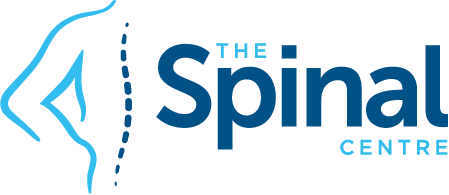
Reduce Your Heart Attack Risk with Vitamin D
 In
In
our quest to prevent overexposure and skin-cancer, we are literally
depleting our Vitamin D stores everyday. New research has now shown
some alarming results for the effects that vitamin D can take on the
body.
The new research, run by Harvard Medical School has shown that a low intake of Vitamin D boost the risks of heart attacks and stroke by an astonishing 60% – something that a lot of us should be very concerned about.
According to the study conducted by researchers at the Harvard
Medical School and published in the American Heart Association’s
journal Circulation, Vitamin D deficiency is a major contributing factor to the increased occurrence of heart attacks and strokes.
Researchers recorded the lives of 1,739 people for a five year
period, assessing their vitamin D levels by means of regular blood
tests. The average age of participants was 59. All participants were
white, and had no prior history of cardiovascular disease.
Participants with low levels of vitamin D had a 60 per cent higher
chance of experiencing a cardiovascular event, including heart attack,
heart failure or stroke, during the study period than those
participants with high blood levels. The correlation remained even
after researchers adjusted for other risk factors such as diabetes,
high blood pressure and high cholesterol.
Those who had both vitamin D defiency and high blood pressure had
twice the risk of cardiovascular events as those who had vitamin D
deficiency alone. The causes of high blood pressure are both biomedical
and lifestyle orientated. Major causes include being overweight,
consuming alcohol, low amount of physical activity, high sodium intake,
smoking and poor nutrition.
“Those who had both vitamin D deficiency and high blood pressure had twice the risk of cardiovascular disease than those who had vitamin D deficiency alone.” |
“There is a growing body of experimental literature suggesting that
vitamin D may have some actions on the heart and major blood levels. As
a corollary, the lack of vitamin D may be associated with the
development of cardiac abnormalities,” said lead researcher Thomas Wang.
The connection between Vitamin D and the body is well-established,
especially for bone health. Vitamin D plays a significant role in the
absorbtion of calcium into the body. A lack of vitamin D can lead to a
bone softening disorder in children known as rickets, and can play a
large role in the incidence of osteoporosis in adults. Other recent
research has suggested that high vitamin D intake may also protect
against certain cancers and neurodegenerative disease multiple
sclerosis.
The Spinal Centre’s comment:
The more sedentary we are, the more we stay indoors and the more we shy away from the sun – the WORSE this problem will get.
Think about it… how much sunshine do you get a day?
Unless you work outside for a living, you will probably be
travelling to work in the dark, work all day in a cubicle, maybe go the
gym (indoors) and arrive home when it’s dark. And even if the sun is
out, we are quick to don the sunglasses, pull our sleeves down and
apply the Factor 45.
We know that too much sun is bad. Too much equals skin cancer. Too
little equals heart attacks and strokes. It’s hard to strike a balance.
The body naturally produces vitamin D when it is exposed to the sun.
The rule of thumb is to try and avoid the ‘harsh’ sun – so try to cover
up between 12pm-5pm. The best time to get some sun on your skin is in
the morning. So instead of eating morning tea at your desk, go for a
walk and get 10 or 15 minutes of sun on your skin.
Aim to get around 3 sessions of 10-15 minutes sun exposure every week, with darker skinned people needing more.
Now, this is easy to say when it’s summer and the sun is out all
day. However, if you experiencing a typical Australian winter
(especially for those in the south), getting sunshine is hard when it
is hidden behind the clouds. And, if you have no choice but to be
inside all day, that advice simply may not work for you.
What else can you do?
- Get your vitamin D levels checked. While too little vitamin D is
dangerous, too much is toxic. Most of the vitamin D tests out there are
testing for the wrong kind of vitamin D.The Spinal Centre Vitamin D test is an easy, affordable way to determine your
exact vitamin D levels, and how much you need to function optimally. We
will provide you with a personalised report and product recommendations
to boost your vitamin D levels. Click here for more information. - Keep up your intake of vitamin D-rich foods. Food like green
vegetables, fruit, milk and yogurt contain some vitamin D to boost your
levels. - Take a vitamin D supplement. There are a lot of vitamin D
supplements on the market, and unfortunately, a lot of them aren’t
worth your time or money. A good vitamin D supplement should contain
the right type of vitamin D and should be easy to absorb.The Spinal Centre selects only the best products available. Bioceuticals D3 Drops
is a great little product. It contains enough vitamin D in a few drops
to boost your levels, and it’s convenient and small enough to take with
you anywhere. Click here for more information.
There are also a few other steps you can take to reduce your risk of heart attacks and stroke and ensure optimal health:
Calcium and Vitamin D
Vitamin D is essential for promoting calcium absorption in the gut.
It is also needed for bone growth. Without sufficient vitamin D, bones
can become thin, brittle or misshapen. Sufficient vitamin D will
prevent rickets in children, and also helps to protect older adults
from osteoporosis.
The majority of Australian adults don’t get anywhere near enough
calcium. Keep your bones strong and prevent osteoporosis by taking a
good quality calcium and vitamin D supplement like Metagenics Calcitite Hi-Strength Think of it as a two-for-one deal. Calcitite Hi-Strength provides you
with a strong dose of calcium and vitamin D to ensure maximum
absorption. It also contains magnesium, phosphorus, boron and vitamin K
to assist in the the prevention of osteoporosis. And, unlike certain
chemist brands that contain calcium citrate and vitamin D, our brands
contains the CORRECT forms of the vitamins and minerals for optimal
absorption.
Take a multivitamin
Without adequate vitamin and mineral intake, our body is unable to
absorb nutrients, including vitamin D. Unfortunately, we have been led
to believe that we are getting more than enough vitamins and minerals
from our foods – which is totally wrong. In a nutshell, hundreds of
years of farming has left the soil depleted of vitamins and minerals,
producing nutritionally-poor food. Processed foods and chemical
pesticides further deplete these levels. The smart thing to do?
Supplement. Think of it as ‘filling in the gaps’ in your diet.
Our most popular multivitamin is still Eagle Pharmaceuticals Tresos B.
It provides a wide array of vitamins and minerals and support good
health and wellbeing. Daily use will supplement your diet and ensure
that your body is getting enough vitamins and minerals for optimal
function.
Use a Fish Oil
It is little wonder that in remote countries where fish is a staple
food, the lowest incidence of heart attacks are recorded. Fish oil has
long been known for its anti-inflammatory effects – on joints, muscles
and ligaments. However, recent research is now showing the benefits of
fish oil for the cardiovascular system. Fish oil helps by reducing
inflammation in the heart and soft tissues, and dramatically reduces
high cholesterol – a common cause of cardiovascular events.
Supplementing with fish oil is especially important for those taking
statin drugs. Many Australians take statin drugs to help lower their
cholesterol, but, like many prescription medications, these drugs are
often unnecessary. In a 2005 study, fish oil were shown to reduce
cholesterol better than statin drugs alone – and without any dangerous
side effects. Coupled with the use of a statin, this partnership could
realistically eliminate high cholesterol in individuals.
The best type of beneficial fatty acid to take for the reduction of
inflammation and high cholesterol is definately EPA (eicosapenoic
acid). A good EPA supplement, like Metagenics Meta EPA/DHA
will work fast to reduce inflammation of muscles and joints, whilst
benefiting the cardiovascular system by decreasing cholesterol levels.
- The Best Fish Oils
- When Oils Ain’t Oils
- Omega-3 Intake Linked to Younger Biological Age
- Fish Oil During Pregnancy Leads to Smarter Babies
Start CoQ10 Supplementation
CoQ10 is a compound naturally occurring in the human body. Acting in
conjunction with enzymes, CoQ10 speeds up the vital metabolic process,
providing energy that the cells need to digest food, heal wounds,
maintain healthy muscles and perform countless other body functions. It
is found in every cell of the body.
Unfortunately, as we age our level of CoQ10 decreases. Statin drugs
also leech CoQ10 out of the body. Basically, a deficiency in CoQ10 can
have massively detrimental effects on your health and body – especially
your heart. If you are taking a statin drug, you MUST supplement with
CoQ10. Traditionally, it has been very costly to purchase, however Eagle Pharmaceuticals Q10 150 is an affordable and potent supplement that should be taken daily as a preventative against heart disease.
What more can I do?
For the most individualized prescription that is based specifically on your body, we strongly encourage you to complete The Spinal Centre Online Initial Consultation.
This in-depth questionnaire and subsequent report of recommendations
will help to determine areas of your health that need addressing, and what
you need to take to get back to best health possible. Not only is the
Online Consultation ideal for this purpose, it will also provide an
exact product recommendation suited to you. No more guessing, no more
wasting money on needless supplements. So if you want to read more
about how you can feel better, all the time, read more about the Online
Initial Consultation by clicking here.
Exercise regularly
Most of us don’t exercise anywhere near enough, if at all. You need
to aim for at least 20-30 minutes of good exercise a day. Get your
heart pumping, raise a bit of sweat and help your body heal itself.
Include a light weights program as well as cardio to strengthen
muscles, joints and bones. Make the effort now and you’ll feel a whole
lot better straight away – and later in life.
Eat well
We all should make a conscious effort to eat well everyday. Ideally,
you should eat like a meat-eating vegetarian coeliac. What does that
mean? The majority of your diet should consist predominantly of fresh
vegetables and fruit, with some meat and NO grains. Grains promote a
state of inflammation, leading to disease and chronic illness. Drink
plenty of water (minimum 20ml per kilo of body weight – everyday) and
eat regularly (every 2-3 hours). Educate yourself with the following
articles:
- Eating to reduce inflammation
- Why change our diet?
- Health promoting nutrition explained
- Optimal water intake





